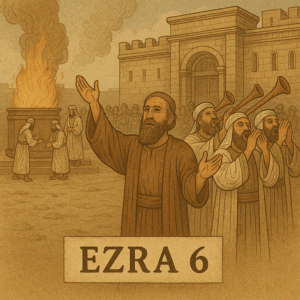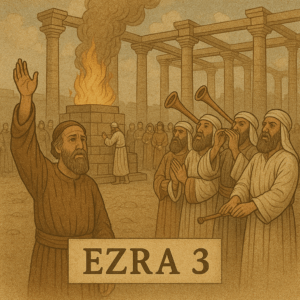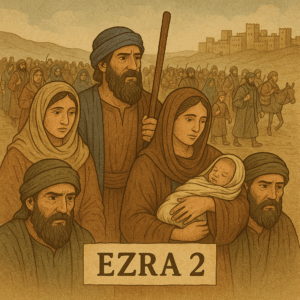Introduction.
Joshua Chapter 21 details the allocation of towns and pasturelands to the Levites, the priestly tribe of Israel. This chapter highlights themes of divine provision, the fulfillment of promises, and the importance of the Levites’ role within Israelite society. In this blog post, we delve into the key elements of Joshua Chapter 21 and explore the lessons they offer.
The inheritance of the Levites.
Unlike the other tribes of Israel, the Levites did not receive a specific territory as their inheritance. Instead, they were given towns and surrounding pasturelands scattered throughout the other tribes’ territories. Joshua 21:1-3 begins by explaining this unique arrangement:
“Now the family heads of the Levites approached Eleazar the priest, Joshua son of Nun, and the heads of the other tribal families of Israel at Shiloh in Canaan and said to them, ‘The Lord commanded through Moses that you give us towns to live in, with pasturelands for our livestock.’ So, as the Lord had commanded, the Israelites gave the Levites the following towns and pasturelands out of their own inheritance.”
This distribution ensured that the Levites were integrated into the community and could carry out their priestly duties across the entire nation.
The allocation of towns.
Joshua 21:4-40 provides a detailed listing of the towns allocated to the Levites, divided among the clans of Kohath, Gershon, and Merari. Each clan received specific towns within the territories of various tribes:
“The first lot came out for the Kohathites, according to their clans. The Levites who were descendants of Aaron the priest were allotted thirteen towns from the tribes of Judah, Simeon, and Benjamin… The descendants of Gershon were allotted thirteen towns from the tribes of Issachar, Asher, Naphtali, and the half-tribe of Manasseh in Bashan… The descendants of Merari, according to their clans, received twelve towns from the tribes of Reuben, Gad, and Zebulun.”
This distribution emphasized the importance of the Levites’ role throughout the land, ensuring their presence and service in every region.
The fulfillment of God’s promises.
Joshua 21:43-45 concludes the chapter with a powerful affirmation of God’s faithfulness:
“So the Lord gave Israel all the land he had sworn to give their ancestors, and they took possession of it and settled there. The Lord gave them rest on every side, just as he had sworn to their ancestors. Not one of their enemies withstood them; the Lord gave all their enemies into their hands. Not one of all the Lord’s good promises to Israel failed; every one was fulfilled.”
This passage highlights the completion of God’s promises to the Israelites, affirming His faithfulness and the fulfillment of His word.
Lessons from Joshua chapter 21.
- Divine provision: The allocation of towns and pasturelands to the Levites reflects God’s provision for those who serve Him. It reminds us that God takes care of those who dedicate their lives to His service.
- Fulfillment of promises: The chapter’s conclusion underscores the reliability of God’s promises. Every promise made to the Israelites was fulfilled, demonstrating God’s faithfulness and trustworthiness.
- Integration of service: The distribution of the Levites among all the tribes emphasizes the importance of integrating spiritual service into every aspect of community life. It highlights the need for spiritual leadership and guidance in all regions.
- Community responsibility: The other tribes’ role in providing for the Levites reminds us of the community’s responsibility to support those who serve in spiritual roles. It encourages us to value and care for our spiritual leaders.
Conclusion.
Joshua Chapter 21 is a chapter that details the allocation of towns and pasturelands to the Levites, highlighting themes of divine provision, the fulfillment of promises, and the integration of spiritual service into community life. As we reflect on this chapter, let us be inspired to trust in God’s provision, recognize the fulfillment of His promises, and support those who serve in spiritual leadership.




